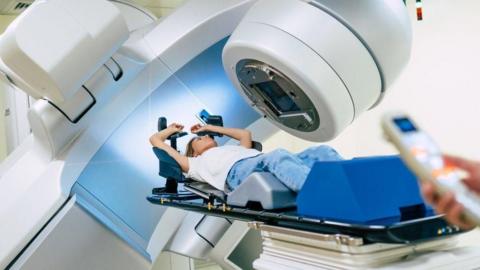And cancer charities said tacking the failings was arguably more important than reducing waiting times.
Eve Byrne, from Macmillan Cancer Support, said the findings were "quite staggering", adding that tackling the variation should be the "number one priority" in the forthcoming national cancer strategy.
"Getting the best care to give you the greatest chance of survival should not come down to which hospital you attend or where you live in the country," she said.
Ms Byrne said patients should get the right care for their particular type of cancer, no matter where they are.
"We are concerned that people from deprived, rural or ethnically diverse communities could be losing out in particular," she said.
Amy Rylance, from Prostate Cancer UK, said patients were effectively being denied their "best chance of a cure", adding: "This needs to change now."
NHS England cancer director Prof Peter Johnson said: "We know that patients' experience of cancer treatment does vary – and we are working hard to address this."
And a Department of Health and Social Care spokesman said: "Patients should be able to access the cancer care they need regardless of where they live and we are committed to addressing health inequalities as we rebuild the NHS."
A new cancer strategy is expected to be published in the second half of the year, which Health Secretary Wes Streeting has said will revolutionise services.
A Welsh government spokeswoman said it was working with the NHS to "plan, deliver, recover and improve cancer services".
She said the audit highlighted areas where further work was needed.
